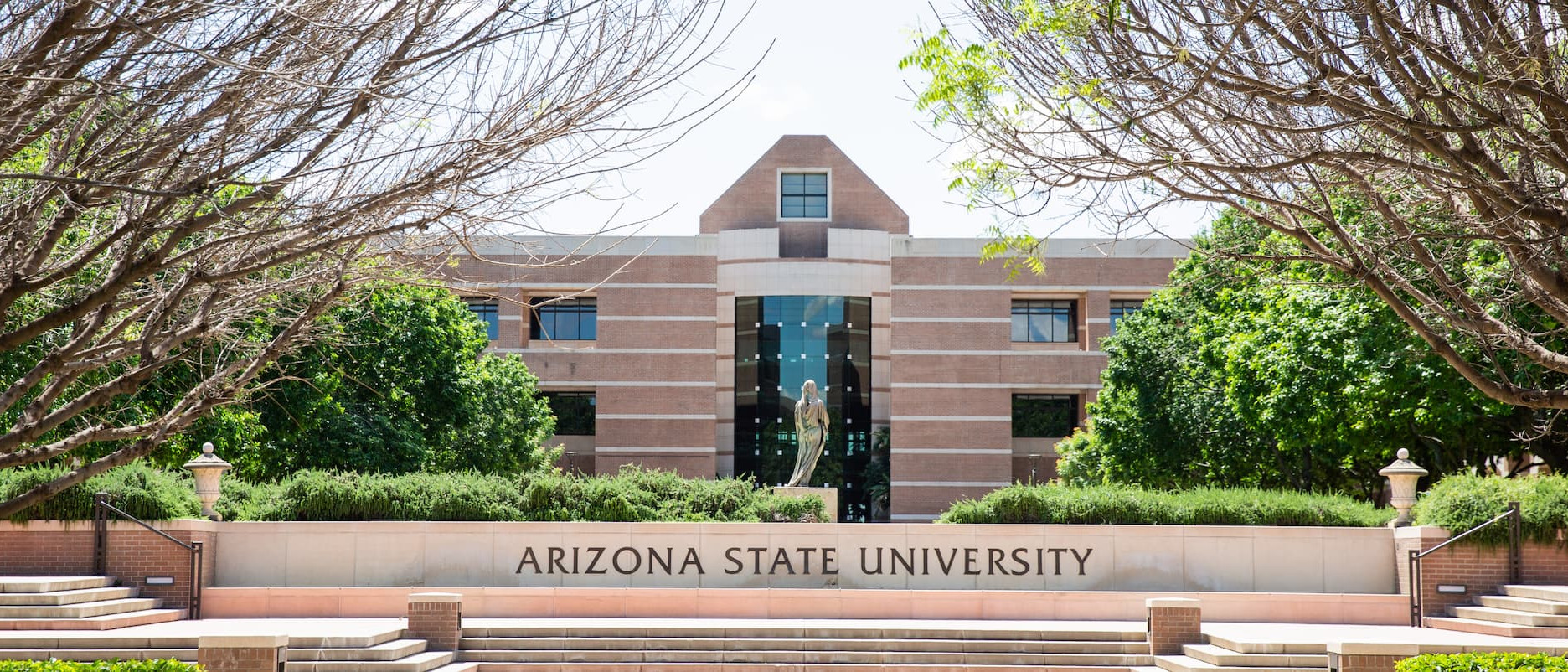

Arizona State University (West Valley Campus)
Community Advocacy and Social Policy, BA
Study detals
: Bachelor's degree : Community Advocacy and Social Policy, BA PPCASPBA : Full time : 48 MonthRequirements
Academic requirements
First-year students must:
- Have a 3.00 grade point average (GPA) (a "B" or better where "A"=4.00) from a secondary school. Some ASU programs may have higher admission or English proficiency requirements and may consider a minimum ACT or SAT score.
- Must have three years of high school coursework. (If you are currently in high school, ASU needs to see 9–11 grade coursework. If you have completed high school, ASU needs to see 10–12 grade coursework.)
- Must have and present a completed high school diploma or certificate.
Conditional admission
ASU may offer conditional undergraduate admission to international applicants to an on-campus program who meet the academic (aptitude) requirements but who are not proficient in English. This offer of conditional admission will give you time to improve your English proficiency before you start classes at ASU. Your conditional admission offer is good for up to three semesters, during which time you must meet one of these requirements to begin your ASU experience.
Competency requirements
International students who completed high school outside the U.S. are required to meet the following competency requirements:
- Math: four years (algebra I, geometry, algebra II and one course requiring algebra II as a prerequisite).
- Laboratory science: three years total (one year each from any of the following areas are accepted: biology, chemistry, earth science, integrated sciences and physics).
Provide evidence of English language proficiency (TOEFL 61)
Speciality
Available online
Additional information
Program description
The BA program in community advocacy and social policy focuses on advocacy strategies through an in-depth exploration, analysis and comparison of social service systems and policies from an empowerment perspective.
The program emphasizes examining the needs of historically underserved individuals, families and communities. Policy analysis and social change are critical themes in developing an advocacy knowledge base, as are the equally important themes of prevention and social well-being. Students complete courses in two core areas: diversity and oppressed populations, and social issues and interventions.
While the Bachelor of Arts program in community advocacy and social policy is fully accredited regionally under the Higher Learning Commission, it is not accredited through the Council of Social Work Education because it does not lead to a BSW degree. Therefore, this degree does not fulfill a professional licensing requirement: a Bachelor of Social Work degree from a CSWE-accredited Bachelor of Social Work program.
Concurrent program options
Students pursuing concurrent degrees (also known as a “double major”) earn two distinct degrees and receive two diplomas. Working with their academic advisors, students can create their own concurrent degree combination. Some combinations are not possible due to high levels of overlap in curriculum.
Global opportunities
Global experience
Global Education programs give students the chance to witness how policy, advocacy and social service systems function internationally, providing an opportunity for them to develop a valuable skill set that can give them an advantage in their career, as well as personal enrichment. Enhancing global awareness, communication competency and leadership skills through study abroad can better prepare a student for a career in social services.
Whether in a foreign country, in the U.S. or online, participation in one of the more than 300 Global Education programs encourages students to build communication skills that span intercultural boundaries, challenges them to adapt and persevere, exposes them to differences across the world that they can't experience from textbooks, and increases their ability to work with diverse groups of people.
Career opportunities
Graduates are prepared for employment in the social services arena, such as performing basic case management tasks, staffing hotlines and warmlines, making referrals to needed services, recruiting volunteers, and developing and providing training.
In addition, advocate positions are part of many organizations and areas, such as hospitals and the behavioral health system.
This degree program also prepares students to pursue graduate education.